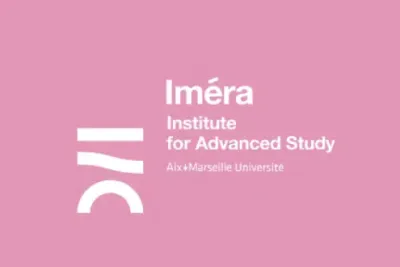France

Mawjaat: Creative Hubs for Cultural Transitions in the Mediterranean
Friche la Belle de Mai is joining forces with Iméra, the Institut for Advanced Study (IEA) of Aix Marseille Université, as part of a cooperation project in partnership with the French cultural network abroad and with the support of the Ministry of Europe and Foreign Affairs: “Mawjaat : Creative Hubs for Cultural Transitions in the Mediterranean“ This project is part of a drive to strengthen links between cultural creative hubs in five countries on the southern shore of the Mediterranean: Morocco, Algeria, Tunisia, Egypt and Lebanon, as well as France.
Candidates meeting these 5 conditions are eligible:
- The selected candidate must have the administrative and consular capacity to travel to the six countries concerned (Morocco, Algeria, Tunisia, Egypt, Lebanon and France).
- Proven scientific excellence in one of the areas of research related to creative hubs, third places, hybrid spaces, their narratives and functions.
- Not have been resident in France for more than 12 months in the 3 years preceding the call for applications
- Hold a doctorate or Ph.D. or have 6 years’ research experience after obtaining a Master’s degree
- The candidate must have the legal status to enter into a contract for the provision of a service.
- Language skills: English, French (full professional written skills and full oral comprehension) and literary Arabic (spoken) or, failing that, dialectal Arabic spoken in one of the project countries.
In a context of cultural solidarity in the southern Mediterranean region, this project aims to support and strengthen, as well as nurture, a common reflection on cultural transitions based on a community of creative hubs, hybrid spaces and creative hubs. Mawjaat encourages regional cooperation between these key players in the cultural landscape on the southern shores of the Mediterranean, places for reflection and experimentation around shared development issues: social innovation, citizen participation, digital culture and ecological transformation.
Over a two-year period (May 2025-May 2027), Mawjaat will help to create regional Mediterranean expertise and support this community of creative hubs in its role as a creative and innovative laboratory, in particular through the implementation of a programme of experimental grants and the organisation of thematic workshops.
The result of a partnership between Friche la Belle de Mai and Iméra, the research-action carried out in year 1 (January 2026 to January 2027) will combine field surveys in the five partner countries, an analysis of the regional ecosystem of creative hubs and the production of a deliverable[1] presenting the results of the research. The research will culminate in a 5-month residency at Iméra (Marseille), scheduled for year 2 (February to June 2027).
The candidate is expected to develop research in co-construction with the partner creative hubs and in dialogue with the scientific team (“Mediterranean” and “Arts & Sciences: Indisciplined knowledge” programmes) and the Iméra community. This collective dimension and the field surveys will have to be made explicit in the project. The project will indicate the working methods envisaged as part of this immersion research.
The main thrusts of the action research are as follows:
- To study and analyse the role and contribution of creative hubs in the five countries on the southern shore of the Mediterranean (Morocco, Algeria, Tunisia, Egypt and Lebanon) to the cultural, social, ecological and economic transformations taking place in the region.
NB: The pilot creative hubs will already be identified at the start of the research, the final list will be communicated to the applicant who remains free to work with other players in these ecosystems.
- Understand their role as catalysts for innovation, co-creation, participative and inclusive culture and as levers for digital and ecological transition.
- Exploring their capacity to produce and disseminate knowledge that is situated and rooted in local areas, and their role in building local solutions to global challenges.
- Identify their contribution to emerging civic dynamics.
The thematic orientations proposed below are intended as food for thought. They are not exhaustive: the candidate is free to add to them and to propose other angles of analysis consistent with the objectives of the programme.
The political, social, economic and climatic challenges facing the Mediterranean region have given rise to new forms of reflection, action and commitment within cultural communities, making these civil society players the spokespeople for change.
Commonly referred to as Tiers-Lieux or Creative hubs, these collectives are accompanying the changes in societies in the southern Mediterranean by taking up often sensitive issues relating to youth, education, gender, innovation and the environment.
Outside the institutional channels that favour a more traditional vision of culture, they are moving into new areas and bringing with them a community of players and users who share practices that illustrate a different vision of the social role of culture. These creative hubs, whether already established or in the process of being set up, are home to a host of initiatives and are becoming multiform and hybrid focal points, enabling a cultural offering to exist and social and entrepreneurial support to take root in these areas.
Artists’ studios, broadcasting spaces, rehearsal rooms, fablabs, digital spaces, gardens, etc. Creative hubs are places for mixing and mingling, reinventing ways of passing on knowledge, fostering collective intelligence and encouraging citizen participation – places that are playing an increasingly important role in the cultural, social and economic transformation of a region.
This research-action project is open to a variety of disciplinary and interdisciplinary approaches in the humanities and social sciences, including, but not limited to, the following:
- Sociology,
- Anthropology,
- Geography,
- History,
- Ethnology,
- Social and solidarity economy, among others.
- Internal seminar organised at the launch of the research (end of October/November 2025): meeting with partners and the scientific team, open discussion on the subject of the research.
- Field surveys (between January 2026 and January 2027): a mission lasting around two months in each country to meet and research the pilot third places and their ecosystem.
- Residency at Iméra (4 February to 30 June 2027): these five months of residency at Iméra devoted to research should enable the candidate to meet and share his or her work with the Institute’s international and interdisciplinary community of residents, to structure and write up the results of his or her investigation and, finally, to think about the formats for the deliverable he or she wishes to present.
